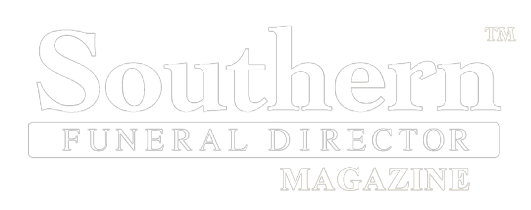(404) 312-6640
The Basics of Personnel Records
Most funeral home owners know that they should have a personnel file for each of their employees, but fewer know exactly what should be in those files and fewer still understand that they should be keeping several separate types of employee files. This article provides the basics on the employee records and files you should be keeping.
The first and most basic is the Personnel File. It is a history of an employee’s time with your company. It is documentation supporting your decision to hire them, train them, promote them, retain them, or terminate them. The files are confidential and should be stored in a secure place. That means under lock and key. They should never leave the office where they are stored or allowed to lay out where they could be seen by unauthorized persons. They should generally be accessible only to the owner, a senior manager, or in larger firms, the human resources director. Specifically, the personnel file for an employee should contain information such as the following:
• Application for employment
• Resume and cover letter
• Offer of employment and signed acceptance, or signed employment contract
• Job description
• Copies of professional licenses and renewal record
• Emergency contact information
• Performance reviews (The employee should sign these, not necessarily agreeing with the review, but acknowledging receipt of it.)
• Disciplinary actions including letters of warning or complaint resolution (Again, signed by the employee acknowledging receipt.)
• Consumer complaints and consumer letters of thanks after the employee has seen them
• Education, continuing education records, and training records
• Resignation letter or termination documents and final accounting
There is no federal law which grants employees the right to see their own personnel file. However, many states have laws that allow the employee to see their file under certain rules and conditions such as how often they have access, what notice is required, whether they can make copies of the contents, if they have access after termination, etc. While many employees might want to see their file just to see what tidbits it may contain such as what management really thinks of them, they should be disappointed. There shouldn’t be anything in the file they don’t already know about- either because they created the document, or they signed off on the document.
Obviously, there are a lot more employee related records you are required to have, but due to the sensitivity of the personnel file, these other records should be kept and stored separately. In this way, you can control who can see certain records.
The Payroll File for each employee should be accessible only to senior management, human resources, and the person or department that handles your payroll. It will not only be kept in a separate cabinet, but possibly in a separate office, giving access to those who need it. It should contain the following types of records:
• Offer letter
• Pay authorization
• Pay history
• Pay stubs
• W-4 form
• Direct deposit authorization
• Time sheets or time records
• Attendance records
• Vacation, sick leave, or PTO records
• Expense reports and reimbursements
• W-2 forms
• Payroll deductions
The I-9 File can be one file that contains all the completed I-9 forms (“Employment Eligibility Verification Form”) for each employee. These forms are required by the U.S. Citizenship and Immigration Service (USCIS) and the Department of Homeland Security (DHS). The forms are required for all new hires and document the person’s identity and eligibility to legally work in the U.S. In the event of a visit from one of these departments, you can grant them access to the I-9 forms without granting them access to other confidential employee information. (Paperwork Management Hint: A three-ring binder is a convenient way to keep these forms. Place new hires in the back and those due for disposal will work their way to the front.)
The Medical File for each employee is also confidential and should also be kept as secure as the personnel files. Like personnel files, they should never leave the office where they are stored and never left out. Access should be strictly limited. Only the owner, senior manager, or Human Resource Director should have access to these files. These files will contain documents such as:
- Health and life insurance applications
- Beneficiary information
- Medical leave requests
- Family Medical Leave Act (FMLA) documents (if applicable to your firm)
- Employee disability information under the Americans With Disabilities Act (ADA)
- Physical exam records and test results
- Physician notes and recommendations
- OSHA accident and exposure incident reports
- Worker’s compensation records
Information relating to a disability can be released to others such as a supervisor who may need to make an ADA accommodation and safety or emergency personnel. Government officials checking for ADA compliance have the right to see disability related records, so you are wise to keep these separate from an employee’s general medical information. Employees generally have access to the information in their own medical file, but again, there shouldn’t be anything there they are not already aware of. Release of any of this information to others should require a signature of release by the employee.
The OSHA Training File can be one file that contains training records for your employees including:
- Proof of initial (New employee orientation) training
- Proof of annual training in the Formaldehyde Standard and the Bloodborne Pathogen Standard for all employees with this exposure. A copy of the training material used that year as well as the qualifications of the trainer should be included.
- Other ongoing safety training or safety meeting records
The Hiring File should contain documentation of your hiring process for each position that you fill. This would include:
- Job posting
- Job description
- Resumes received
- Reference checks
- Background checks
- Credit reports on applicants
- Verification of education and previous employment
- Results of employment, aptitude, or personality tests used
- Check lists and forms used in the process
This documentation should show that you did not discriminate in the hiring process and by not including it in a personnel file, the information is not accessible to a current or former employee. Assume however, that it can be subpoenaed, so it should not contain interview notes, opinions, or unsubstantiated information on an applicant.
Investigative Files are also confidential and are not accessible to employees and should contain documentation of your efforts to investigate and resolve complaints such as a sexual harassment complaint. Again, it should contain only factual information because it too could be the subject of a subpoena in a court action. Only the resolution of the complaint (signed as acknowledgment of receipt by the employee) should be placed in the personnel file of the employees involved. So how long should you keep these records? Federal and state law regarding the retention of these records varies widely.
- Personnel files- 1-3 years after employment ends
- I-9 forms- 3 years or 1 year after employment ends, whichever is longer.
- Medical records- OSHA requires retention of accident records for 5 years and exposure incident and other OSHA related medical records for the term of employment plus an additional 30 years.
- Annual OSHA training records- 3 years (When you have completed year four of training, dispose of year one records.)
- Hiring files- 1-4 year after the position is filled
- Payroll records- 3-6 years
You can err on the side of caution by keeping employment records for 7 years and OSHA related medical records until sometime after your grandchildren takes over the business. During these periods of time, you must continue to safeguard the records and limit access to authorized persons only. When it does come time to dispose of them, confirm the current retention requirement in your state and ensure the records are destroyed either by burning or shredding. Keep a record of how electronic records were deleted to show your good faith effort to prevent unauthorized access.
This article is meant to be a general discussion on the topic presented. It is not meant to be legal advice. Human resource issues are especially subject to changes in the law on a federal, state, and local level. Consult an HR professional or your attorney before implementing any personnel policies in your firm.
Curtis Rostad, CFSP, is a licensed funeral director, embalmer, and former funeral home owner with over 50 years in funeral service. He served for 12 years as Executive Director of the Indiana Funeral Directors Association before retiring at the end of 2016. He now serves as Director of Compliance for the Foresight Companies of Phoenix, AZ.
He can be reached at 1-800-426-0165.
The Foresight Companies
A trusted, experienced partner to help manage your business. Our mission is to provide our clients with customized financial and operational solutions. We deliver results through our passion for the profession and the communities they serve. Our formula includes the knowledge gained from our Partners who have over 100 years of combined funeral and cemetery industry experience. We have the insight and experience to make a difference for you.






Comments